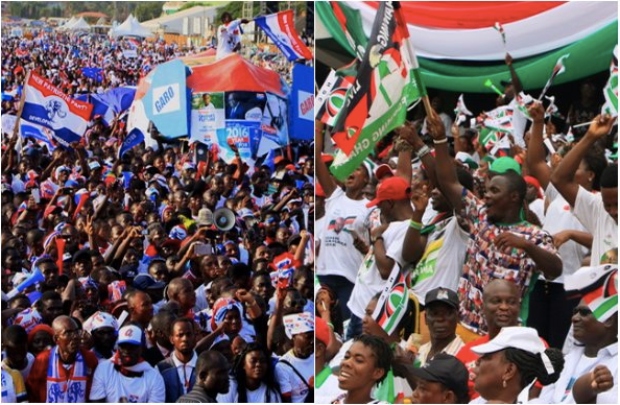Since the inception of the 4th Republic and the return to democratic rule in Ghana, the New Patriotic Party (NPP) and the National Democratic Congress (NDC) have alternated in power.
This began with Flight Lieutenant Jerry John Rawlings, who many thought would refuse to cede power after enjoying two decades of both military and democratic rule. However, to the admiration of all, he peacefully handed over power to J.A. Kufuor in 2000.
The NPP’s new administration was initially welcomed with enthusiasm, but after eight years, Ghanaians opted to bring back the NDC in what is locally referred to as "sankofa" (going back to fetch). The 2008 election was particularly intense, requiring a runoff that ultimately hinged on the results from the town of Tain in the Brong Ahafo region. The NDC emerged victorious, bringing the late J.E.A. Mills, fondly called Asomdwehene (King of Peace), to power.
In 2012, Ghana faced an unprecedented event when President Mills passed away in office. His vice president, John Mahama, assumed the presidency as mandated by the constitution. Mahama's subsequent election victory was contested in the Supreme Court, marking another first in Ghana's democratic journey. However, his tenure ended when Nana Addo Dankwa Akufo-Addo of the NPP won the 2016 election, after several attempts to secure the presidency. Initially seen as a potential game-changer, Akufo-Addo’s government is now facing criticism from those who once hailed him as a savior.
This brings us to the current conversation about a third force in Ghanaian politics. Despite the presence of many political parties, the NPP and NDC dominate the landscape. Recently, discussions have intensified about breaking this duopoly, with dissatisfaction growing towards both parties.
Several potential candidates have emerged as alternatives. Akua Donkor, whose political stance often seems to shift, and Osofo Kyiri Abosom of the Ghana Union Movement (GUM), are among those considered. Another figure is Nana Kwame Bediako, popularly known as Cheddar, who has generated significant visibility through his campaigns. However, questions about his transparency and the source of his wealth cast doubts on his suitability for the presidency.
Former Minister of Trade and Industry, Alan Kyerematen, also known as Alan Cash, has entered the race under the Movement for Change party after resigning from the NPP. Critics argue that his previous role in the current government undermines his credibility as a candidate for change.
One major challenge facing these new candidates is how they will navigate the legislative landscape dominated by the NPP and NDC. Without a clear strategy to work with the existing parliamentary structure, their ability to govern effectively remains uncertain.
As Ghanaians grow weary of the existing political duopoly, the question remains: who is the third force that can lead the nation forward? Are we merely seeking change at the top, or do we desire a comprehensive overhaul of the system? The need for clear answers and viable alternatives is more pressing than ever.
The demand for "anybody but the NPP or NDC" leaves us pondering: So who?
Latest Stories
-
Minority Chief Whip raises concerns over ambiguities in Gold Board bill
50 minutes -
Mahama warns leaders against ‘decisions that kill’ after debt crisis claims lives
51 minutes -
Wisconsin Attorney General sues to block Elon Musk $2m election giveaway
58 minutes -
Disney faces US investigation over DEI practices
1 hour -
Hair relaxers linked to increased breast cancer risk in Ghanaian women
1 hour -
Columbia University president resigns amid Trump crackdown
1 hour -
CJ removal petition: Citizens must not sit back and watch politicians to get their way – NPP MP
1 hour -
Thousands gather to bid farewell to ageless Ga music icon Naa Amanua Dodoo
2 hours -
From despair to hope: Khadijah Bawuma receives life-changing scholarship after Myjoyonline report
2 hours -
Mob kills seven suspected kidnappers in Nigeria’s Edo state
3 hours -
Joseph Paintsil to make injury comeback after six weeks out
3 hours -
14 arrested over missing ECG containers at port
3 hours -
Energy Minister demands forensic audit over missing ECG containers
3 hours -
Joseph Paintsil unveils debut EP ‘Emergency’, set for April 4
3 hours -
Petition to remove CJ is not politically motivated – Adawuda
4 hours

